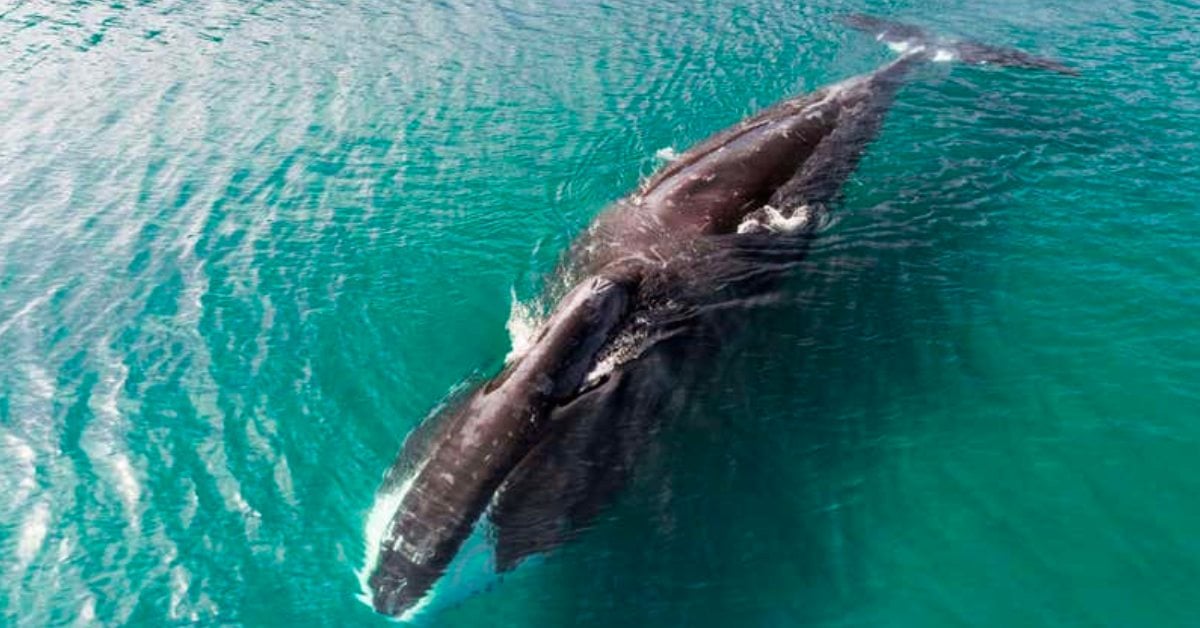
How long might humans live?
When I was in medical school and learned that bowhead whales could live upward of 200 years and Greenland sharks could make it to 400 or 500 years old, it hit me that this could someday be a target for humans as well.
It’s really just a matter of fixing the software or hardware.
Today, I’d like to dive into the underlying magic of the majestic bowhead whales (one of the largest creatures on Earth) that allows them to live up to an astonishing 200 years.
Peto’s Paradox and the Biological Puzzle
Life on Earth presents us with a fascinating puzzle.
Larger animal species generally have longer lifespans. Their bodies also consist of more cells. And since cancer develops from a single cell that undergoes a series of what are called “oncogenic mutations,” you might assume that larger animals are more prone to cancer.
But the opposite is often true. This is what’s known as Peto’s Paradox.
The solution to this paradox is elegantly simple: nature has simply gifted these larger creatures with better anti-cancer defenses.
For example, we’ve known for some time that elephants have extra copies of the p53 gene, a key component of cells’ natural defense mechanism against cancer. Now, recent research suggests that a species even bigger and longer living than the elephant can help us fight cancer: the bowhead whale.
Bowhead Whales: 200-year-old Marvels
Picture this: an 80-ton creature that lives for over two centuries.
Cells need to undergo more than one oncogenic mutation (or “hit”) to become cancerous.
Intriguingly, scientists have discovered that the cells of bowhead whales require fewer hits than human cells on the path to becoming cancerous.
This points to a unique feature in bowhead whales that we are only beginning to understand: an effective way of reducing mutations and repairing DNA.
Unraveling the Bowhead Whale's Secret: DNA Repair
Our DNA is continually exposed to factors such as radiation and oxidative stress that can cause DNA breaks and lead to mutations. We accumulate mutations over the course of our lives.
However, bowhead whales have developed superior DNA repair mechanisms, leading to many fewer mutations. There are two primary mechanisms for addressing double-strand DNA breaks: homologous recombination (HR) and non-homologous end joining (NHEJ).
It's the latter, NHEJ, that researchers have recently focused on.
They have discovered that bowhead whales are masters of NHEJ. This repair tool, although prone to errors in other species, operates with a remarkable efficiency in whales and results in far fewer harmful mutations.
Cold-Inducible RNA-Binding Protein (CIRBP): The Superstar
At the heart of this astounding repair mechanism lies a protein known as cold-inducible RNA-binding protein (CIRBP). This protein is more abundant in whale fibroblasts and responds to stress factors such as cold, hypoxia, and ultraviolet radiation.
Now, here's where it gets interesting.
When scientists overexpressed the bowhead whale version of CIRBP in human cells, it improved the DNA repair efficiency by 1.6-fold. Using whale CIRBP may also be safer than other approaches to fighting cancer that involve killing cells or creating dysfunctional ones that could ultimately be harmful to the body.
This suggests that CIRBP can play a crucial role in human health and longevity.
Towards a Healthier, Longer Life
We are just now beginning to uncover how we might utilize the protective mechanisms developed by bowhead whales to combat cancer in humans.
If we could boost our DNA repair to whale-like levels, we could potentially decrease the incidence of cancers, a group of diseases that have plagued mankind for centuries.
In addition, we might be able to address what Dr. David Sinclair of Harvard University describes as the “Information Theory of Aging” and the struggle that our aging cells have between their ability to balance the demands of DNA repair and epigenetic control. (Note: We’ll be visiting with Dr. Sinclair during my upcoming Abundance Platinum Longevity Trip.)
Sinclair’s theory is grounded in the concept of "information," and it postulates that aging is the result of a loss of information at the epigenetic level, which can be compared to scratches on a DVD that prevent it from being read correctly.
DNA in our cells is organized by a system of epigenetic markers that help cells "remember" what they are supposed to be doing. These markers regulate gene expression, turning certain genes on or off, and ensuring that cells carry out their functions correctly.
However, over time and due to various factors (like environmental stress and DNA damage), these epigenetic markers can change or get misplaced. When this "epigenetic noise" accumulates, cells begin to lose their identity and function improperly, leading to the physical and functional decline that we associate with aging.
Accumulation of DNA damage and alterations in the epigenome are both hallmarks of aging and are involved in many age-related diseases.
Sinclair's theory argues that if we can find a way to reset these epigenetic markers or reduce the noise, we could potentially slow down or even reverse the aging process. In line with this, his research involves studying compounds like NAD+ precursors and sirtuins, which are believed to help maintain or restore epigenetic information.
Perhaps in the near future, using CRISPR / Gene Therapies we might be able to improve human DNA repair mechanisms by endowing humans with extra copies of the p53 gene, or overexpressing the bowhead whale version of CIRBP in human cells on a regular basis.
We’re heading towards a future where we are moving from evolution by natural selection (Darwinism) to evolution by human direction.
Want to learn about how to increase your healthspan? And the top longevity-related investment opportunities available?
If yes, then consider joining me on my 2023 Abundance Platinum Longevity Trip.
I'm running two VIP trips I call my “Abundance Platinum Longevity Trip” covering top scientists, startups, labs, and CEOs in Cambridge, Boston, New Hampshire, and New York. I do the same trip twice for up to 40 participants: Aug. 16 - 20, 2023 or Sept. 27 - Oct. 1, 2023.
Each trip is a 5-Star/5-Day deep dive into the cutting-edge world of biotech/longevity and age-reversal.
You’ll meet with the top 50 scientists, CEOs, and labs working on adding decades to your life. You will also learn about breakthroughs against a wide range of chronic diseases.
This year, some of the world-changing labs and faculty we’ll visit include: David Sinclair, PhD, Harvard Center for Biology of Aging Research; George Church, PhD, Harvard Wyss Institute; Dean Kamen, PhD, Advanced Regenerative Manufacturing Institute (ARMI); and Fountain Life, New York—just to name a few.
Both trips are identical (capped at 40 participants per trip), during which I spend all 5 days with you as your private guide and provocateur. Through this personalized, action-packed program, my mission is to give you exclusive, first-hand exposure to the major players, scientists, companies, and treatments in the longevity and vitality arena.
Here's what you get: All your questions answered. First-hand insights and early access to diagnostics, therapeutics, and investment opportunities.
If you want to learn more about the Abundance Platinum Longevity Trip, go here, indicate your interest and we'll set up an interview!
I discuss topics just like this on my podcast. Here’s a conversation I recently enjoyed:
Peter's Picks:
I'm sure you're aware of the metabolic health crisis that's silently affecting millions worldwide. It's a ticking time bomb, and the clock is ticking faster than we think. But there's a silver lining - most Type 2 diabetes cases are preventable with the right diet and lifestyle choices.
This is where Levels Health comes in. This revolutionary product has been a game-changer for me. It provides real-time insights into how my food and lifestyle choices are impacting my health. The Levels Membership gives you access to continuous glucose monitoring, at-home blood testing, and expert coaching.
I was surprised to find that a certain food I thought was healthy actually spiked my glucose levels! With Levels, you can run experiments across diet, exercise, and recovery techniques. It's not just about controlling weight or optimizing energy levels, it's about preventing chronic diseases linked to glucose control.
For a limited time, Levels is offering my audience 2 additional free months on your annual Levels Membership. Start measuring how food is affecting your health in real-time by checking out Levels here.



-1.png?width=1250&height=197&name=Untitled%20design%20(25)-1.png)
-1.png?width=318&height=50&name=Untitled%20design%20(25)-1.png)




